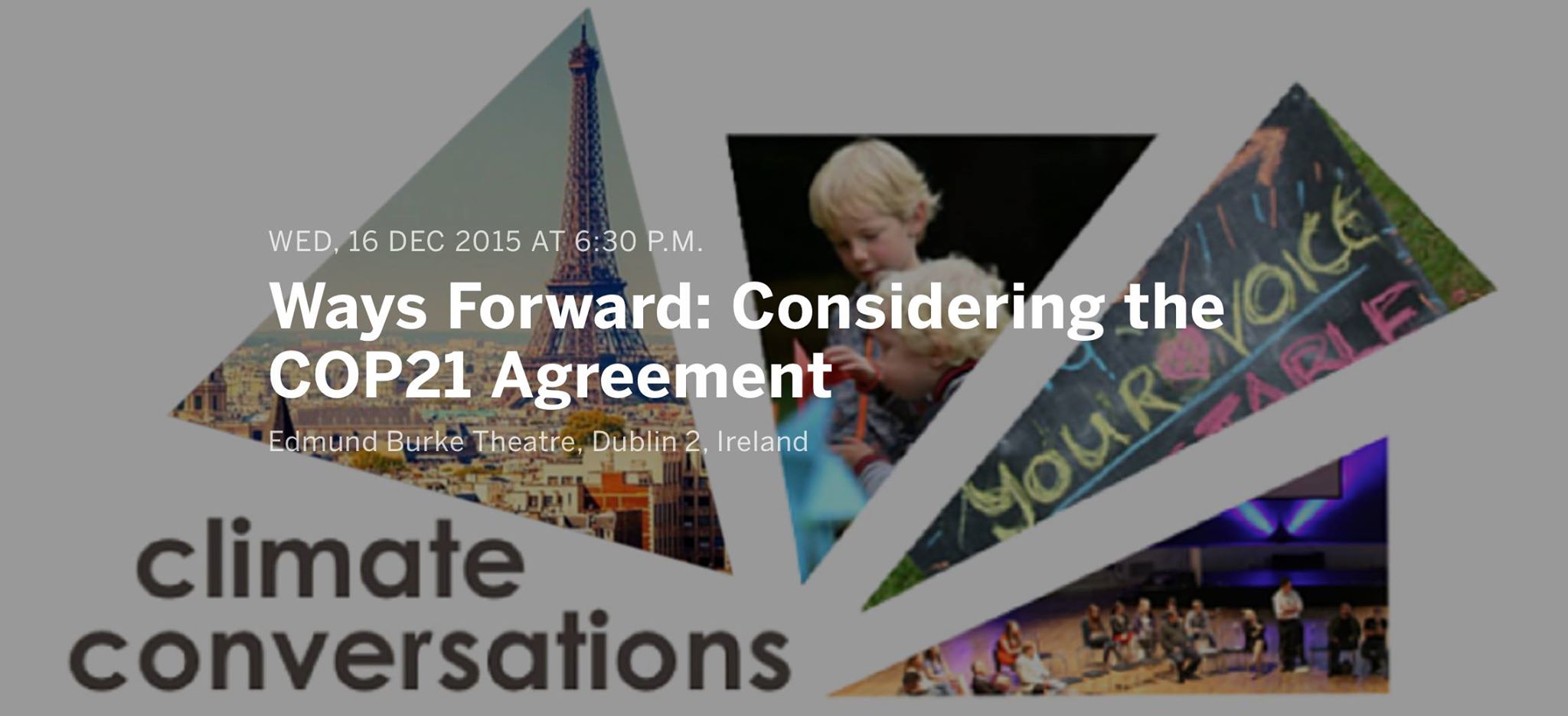
The talk was a collaboration between the Climate Gathering partnership, who focus on bringing Ireland together for a “new understanding on climate change”, and Professor Poul Holm from the Environmental Humanities Initiative at Trinity College.
In opening the conversation, Professor Holm stated that COP21 had left many hopeful for the future of climate change, but it was now imperative that the citizens and corporations of the world ensure that “governments and business follow through on the promises made in Paris.”
Hosting alongside Prof. Holm were Eamon Ryan, Green Party Leader and Co-Convenor of the Dublin Climate Gathering, and Ryan Meade of Climate Gathering. The two spoke of the importance of collaboration, participation, and “fostering dialogue” with regards to the climate change movement.
Paul Melia, the environmental editor of The Irish Independent, was the first guest speaker, and described his own experience at COP21, and how a real “ground swell”, and desire for climate change could be sensed from the public. He went on, however, to highlight that half the population don’t believe climate change is a real pressing issue, and the importance of initiating discussion with politicians about the issue in the upcoming election- particularly with regards to projects promoting energy efficiency and flooding defences locally.
John Sweeney, Professor Emeritus of Maynooth University – who was a member of the IPCC team awarded the 2007 Nobel Prize – then provided an explanation of the weaknesses and scientific implications of the COP21 agreement, notably remarking that the aspiration to keep global warming below 1.5 degrees celsius was not plausible, and that human rights, penalties, and aviation and shipping were all entirely excluded from the document.
A panel discussion was then held, including additional speakers Ciara Kirrane from Stop Climate Chaos, Cara Augustenborg Chair of Friends Of the Earth, and environmental reporter for Eco-Eye Duncan Stewart. There was an extremely high level of audience participation at this point. During the Q&A session at the end of the panel, many participants spoke passionately, and disagreed forcefully on some aspects such as overpopulation and veganism.
The main issues addressed by the panel were the importance of climate change in the upcoming election, food production and security, community energy actions, public transport, and fossil fuels. Trinity College currently has 6.1 mn invested in fossil fuels, and all of the speakers present have stated that they support the college’s fossil fuel divestment campaign- Fossil Free TCD.
Meanwhile in Queens University Belfast a group of students encouraging a university divestment campaign have ended their occupation of offices following agreement reached with university authorities. The agreement calls for a review of the investment strategy to ensure no direct or indirect support of fossil fuels.






